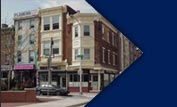- Home
- About
- News
- Tax Reform
- Ethics Reform
- Budget Reform
- Reformer’s Roundtable
- Contact Us







Talking The Talk...Walking The Walk?
Each year, the Greater Philadelphia Chamber of Commerce hosts a lunch where the Mayor is invited to address the city's business community and outline his vision for the coming year. In each of the last few years, tax reform has been a major topic in the Mayor's speech, but as the table below illustrates, what the Mayor has said, and what then actually happened has (to be charitable) been two different things.
| The Mayor Said… |
The Mayor Did… |
| 2002 - Out of an abundance of caution, we propose to reduce the overall tax reduction program by approximately 50 million dollars over the five-year period. While we continue the tax reductions scheduled for FY03, we propose -- beginning in FY04 -- freezing the wage tax at FY03 levels and accelerating the reductions in the gross receipts portion of the business privilege tax. In fact, by FY07, under our restructured tax reduction program, the gross receipts tax will be only half of what it was when our tax reduction program began in 1996. We are targeting the gross receipts tax because it is the City's most onerous, anti-business, and anti-job tax. Consider: A company with gross receipts of five million dollars and a profit margin of one percent pays 12,000 dollars in gross receipts tax -- 24 percent of its profits. This is not the way to encourage business growth! My resolve is firm: if the economy recovers and there are no further unexpected blows to our budget, we will responsibly restore the $50 million reduction and reduce the dreaded gross receipts tax even further! After careful consideration and a full discussion with our Council of Economic Advisors, chaired by Philadelphia Federal Reserve Board Chairman Anthony Santomero, we concluded that accelerated reduction of the gross receipts tax offered the greatest immediate benefit to the local economy. Please keep this fact in mind: the earliest we will reduce scheduled reductions in the wage tax is July 1, 2003 -- approximately 18 months from today. | 2002 - The Mayor asked for and received his accelerated reductions in the gross receipts portion of the Business Privilege Tax, but public outcry -- culminating in a march on City Hall -- resulted in restoration of the Wage Tax cuts the Mayor threatened. Shortly after the march on City Hall, the Mayor hopped on the Wage Tax cut bandwagon and signed the bill to restore the Wage Tax cuts in a very public ceremony. But, not only was the city budget able to sustain both the cuts to the BPT and the Wage Tax, the Mayor also dramatically expanded city spending. Just weeks after arguing that the city could afford no more tax reductions (and even standing up at a city recreation center and claiming tax cuts would force closures to city facilities), and just days after charging to the fore to sign the Wage Tax bill, the Mayor launched his ambitious Safe Streets program, which would spend about $100 million over the next years. Despite the tax rate reductions, tax revenues INCREASED and exceeded budgeted expectations...as they have in each year that the city has reduced its taxes.
|
| 2003 - Tax reductions are an important part of our investment strategy to encourage growth in our city. I will work with the recently appointed local tax commission and Governor Rendell to find responsible ways to achieve local tax reductions and fair funding for public schools across the Commonwealth. | 2003 - The Mayor was less excited about working with the Tax Reform Commission after it released its recommendations. The Tax Reform Commission released its recommendations in November, 2003. After receiving the Commission's recommendations, the Mayor submitted them to review by a hand-picked group of advisors. After that 21st Century Review Forum endorsed the Tax Reform Commission's recommendations, the Mayor balked at implementing them. The Mayor later convened an invitation-only economic summit that endorsed the tax reform recommendations, but the Mayor again balked, opposing efforts to pass legislation to implement the Commission's recommendations. |
| 2004 - There can be no doubt about the need for a more rational, progressive and less onerous tax structure in Philadelphia. Our tax burden layered on an otherwise reasonable cost of living too often makes Philadelphia a tough choice even with all of the attributes and amenities of the city. We owe our businesses, residents and workers comprehensive tax reform that does not compromise the fiscal integrity of the City. For example, it is important that we change the way we levy our business taxes. Instead of punishing businesses for doing business in the City by basing their business privilege tax liability on the amount of property and payroll they have in the City in addition to the level of sales they have, we should base that tax solely on sales. This change will remove a disincentive for firms to locate inside the City. We support the recommendation of the Tax Reform Commission to move to 100% annual real estate assessments and a gradual shift to land value taxation. The Commission report outlines numerous vital recommendations, which will improve, in a dramatic, way our business climate. We will take the work of the Tax Reform Commission as the blueprint for this difficult but necessary task. | 2004 - The Mayor's kind words for the work of the Tax Reform Commission outshined his deeds. The Mayor did not work to implement the recommendation to base business privilege tax liability solely on sales, even though he could do so unilaterally, without any action from City Council. The Mayor did not work to pass legislation to shift to land value taxation. The Mayor fought against efforts to improve our business climate. Far from using the work of the Tax Reform Commission as the blueprint for this difficult but necessary task, he fought to block passage of bills to reduce the Wage Tax and the Business Privilege Tax. In the end, the Mayor signed legislation to reduce the Wage Tax over the coming decade, but vetoed legislation to phase out the job-killing Business Privilege Tax (in various forms on four separate occaisions). |
| 2005 - At a time when our financial capacity to deliver quality City services is on the verge of being compromised, we are confronted with federal and state budgets that propose serious reductions in funding. Therefore, tax reductions, other than those proposed in my budget and Five Year Plan must be offset by new sources of revenue. | 2005 - The Mayor proposed to fund acceleration in reductions to the Business Privilege Tax with an increase in the Parking Tax, but did not work to pass the legislation. After threatening cuts to various city services as a way to prevent reductions to the Business Privilege Tax, the Mayor saw the city budget year end with a large surplus. |
| 2006 - ? | 2006 - ? |


